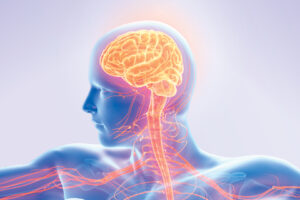Nearly 800,000 Americans suffer a stroke each year, and it’s not just an older person’s disease. In fact, an estimated one in 10 people who experience a stroke are under the age of 45.
If you are experiencing stroke symptoms, you should call 911 immediately to seek expert medical attention. However, there are also a number of steps you can take to reduce your chances of having a stroke.
Am I at risk for stroke?
Stroke is still much more common among people 65 and older. African Americans, American Indians and Alaska Natives are also more likely to have had a stroke than people in other groups.
Certain health risk factors can increase your chances of having a stroke, including:
- Uncontrolled high blood pressure and elevated blood cholesterol, especially LDL or “bad cholesterol.”
- Excess weight and uncontrolled diabetes.
- Excessive alcohol use — more than two drinks a day for men and one drink a day for women.
- Smoking, which has been shown to double a person’s stroke risk.
- A condition known as atrial fibrillation (or AFib), an irregular and sometimes rapid heartbeat.
What can I do to prevent stroke?
The same healthy habits that can help protect your heart can help prevent a stroke:
- Eat a diet full of fruits and vegetables and foods low in saturated fat and cholesterol.
- Maintain a healthy weight — excess belly fat, in particular, greatly increases your risk for cardiovascular disease.
- Aim for at least 30 minutes of moderate exercise on most days.
- Don’t smoke and limit alcohol use.
- Work with your doctor to properly manage chronic health conditions such as high blood pressure and diabetes.
If you’d like to learn more about how to prevent stroke and manage your health, CentraState’s Star and Barry Tobias Health Awareness Center can help. The Center offers more than 200 health education and lifestyle management programs to help you and your family achieve your health and wellness goals.
CentraState also offers the Novo Nordisk Diabetes Center, which is recognized by the American Diabetes Association for meeting the national standard in diabetes education.
For more information on the Health Awareness Center, please call (732) 308-0570.





